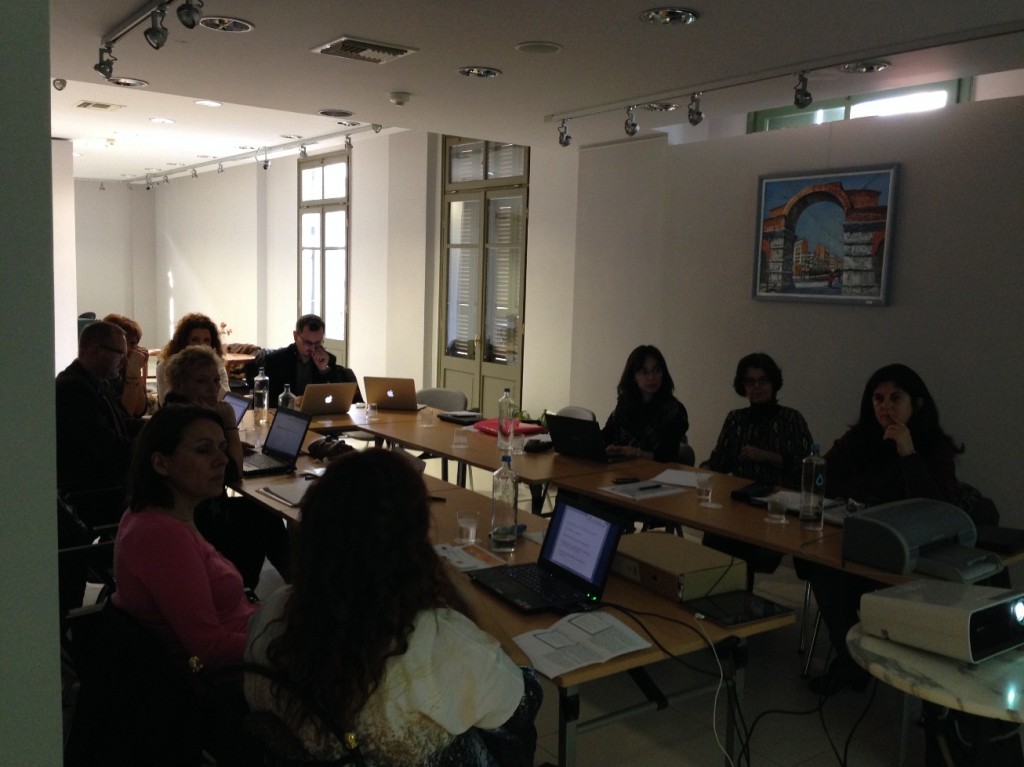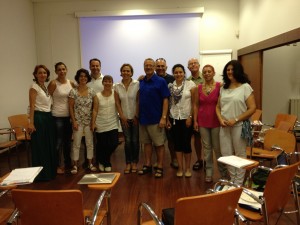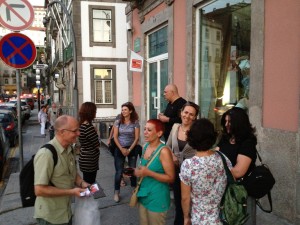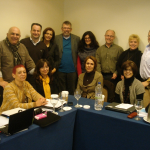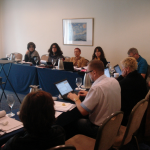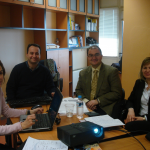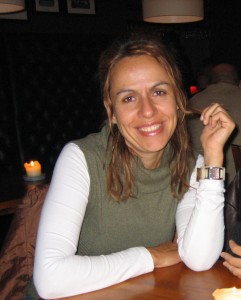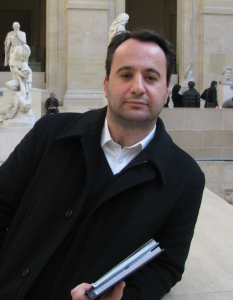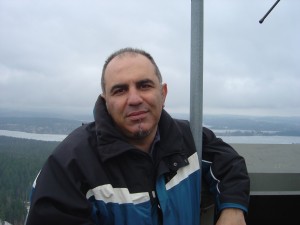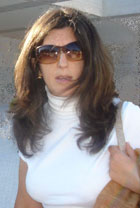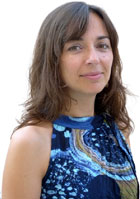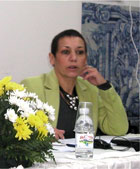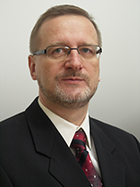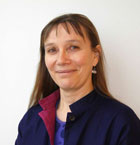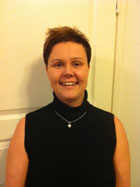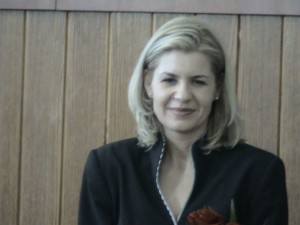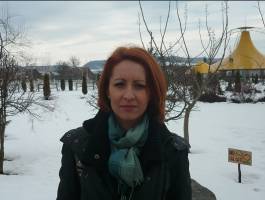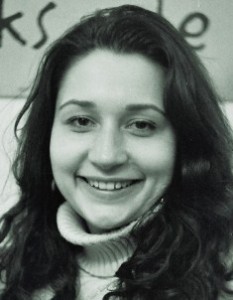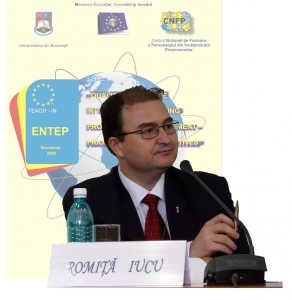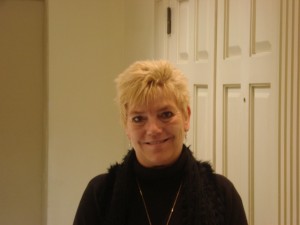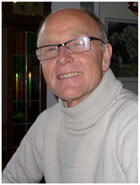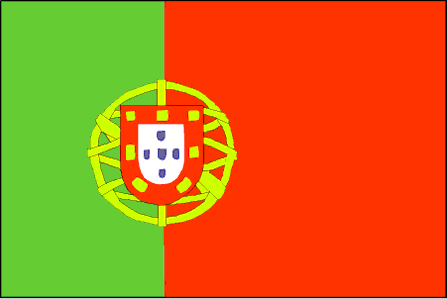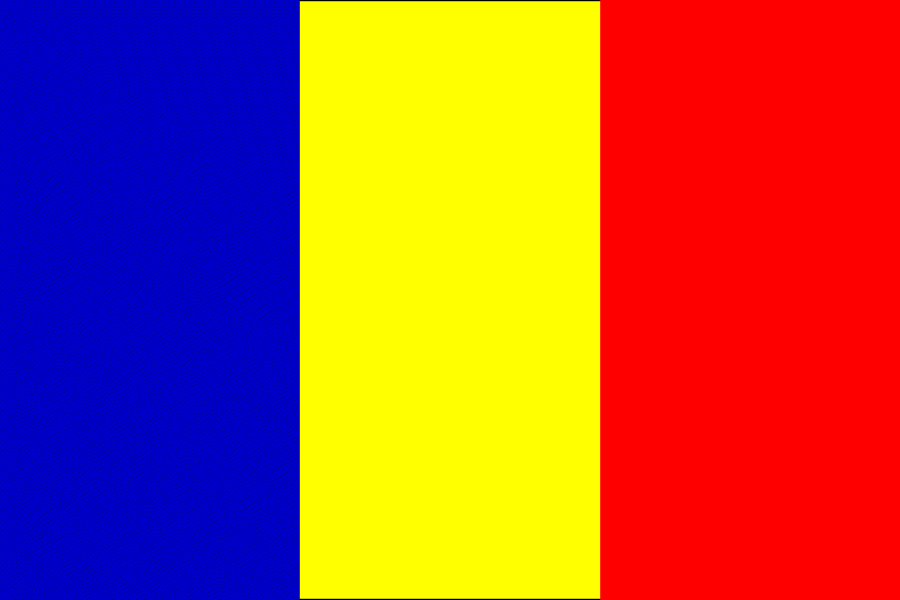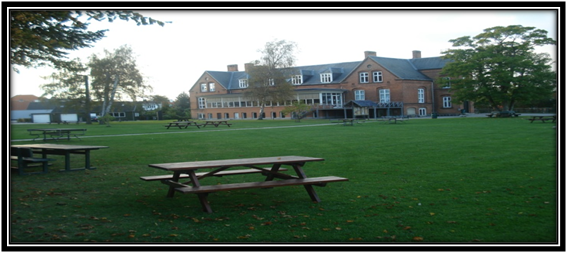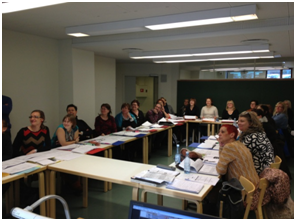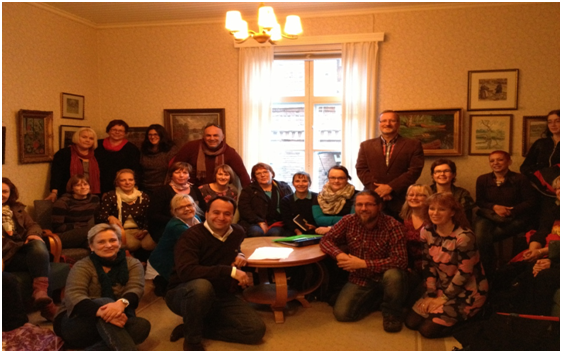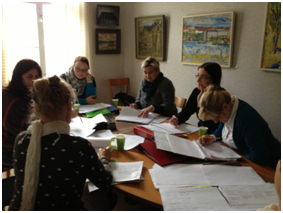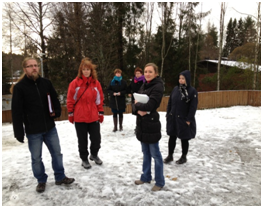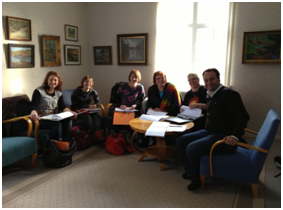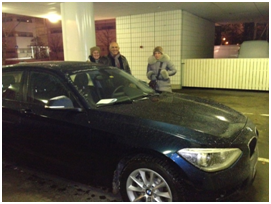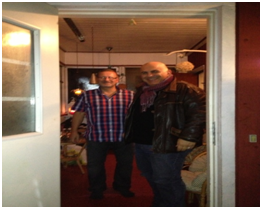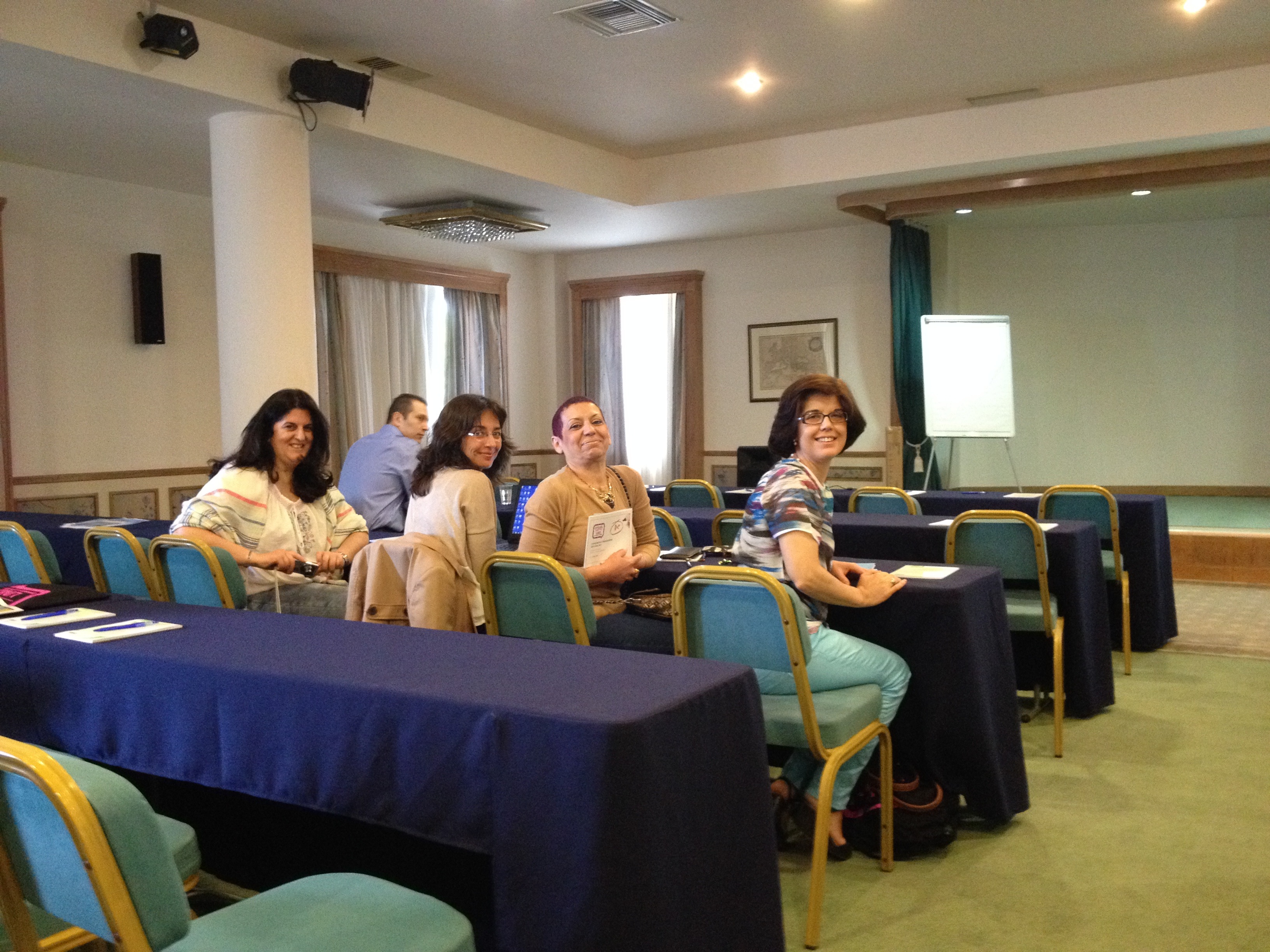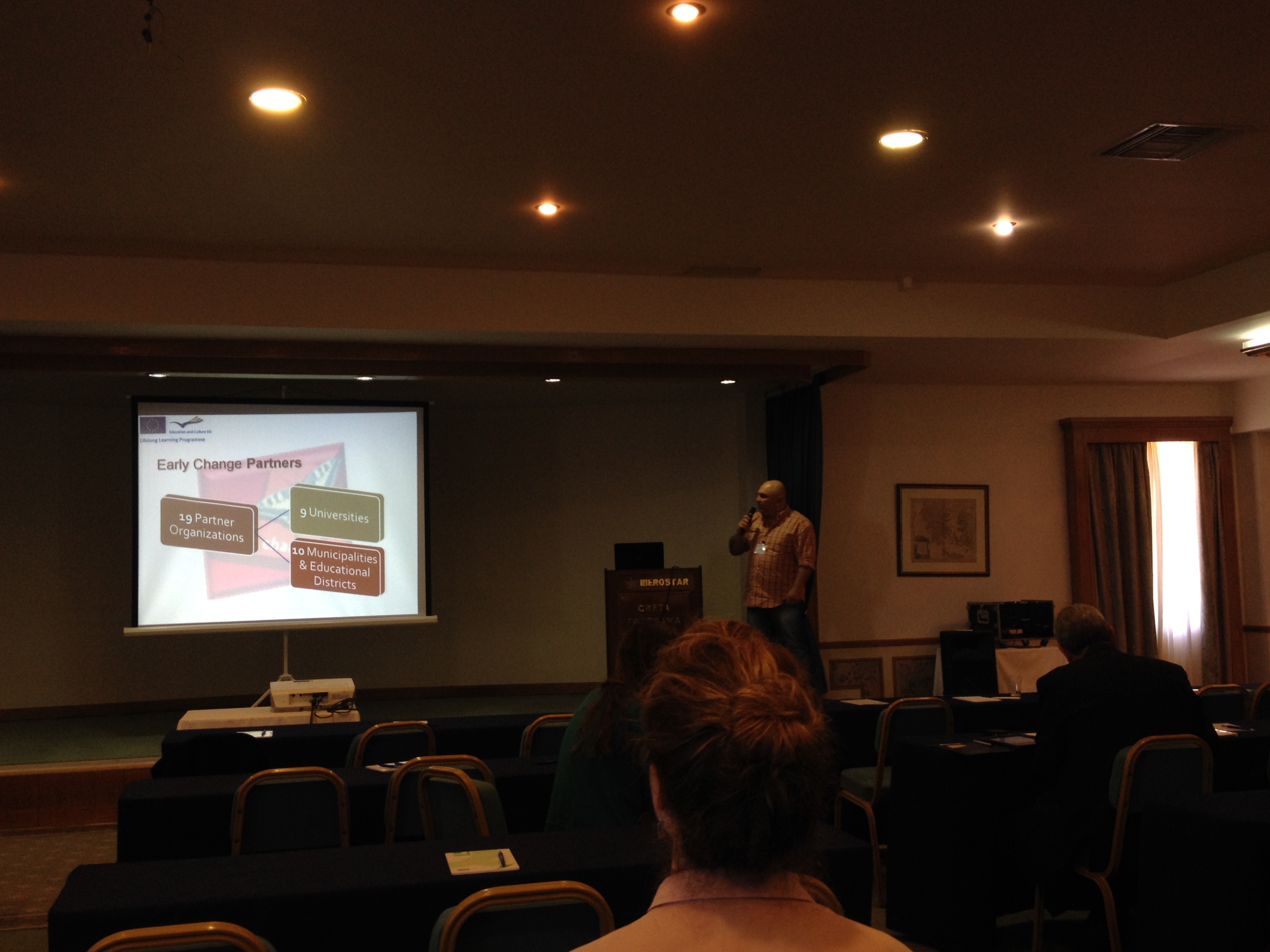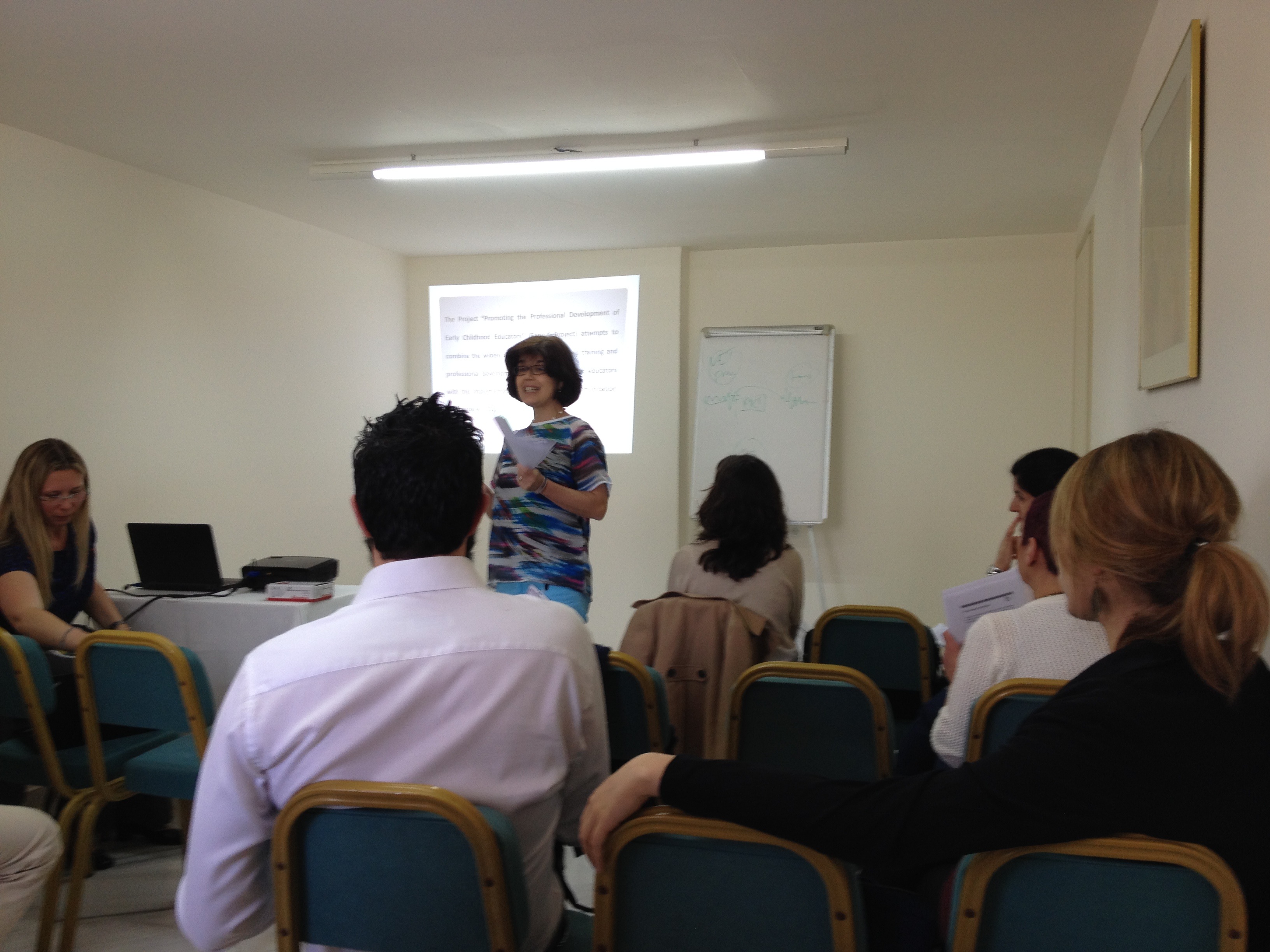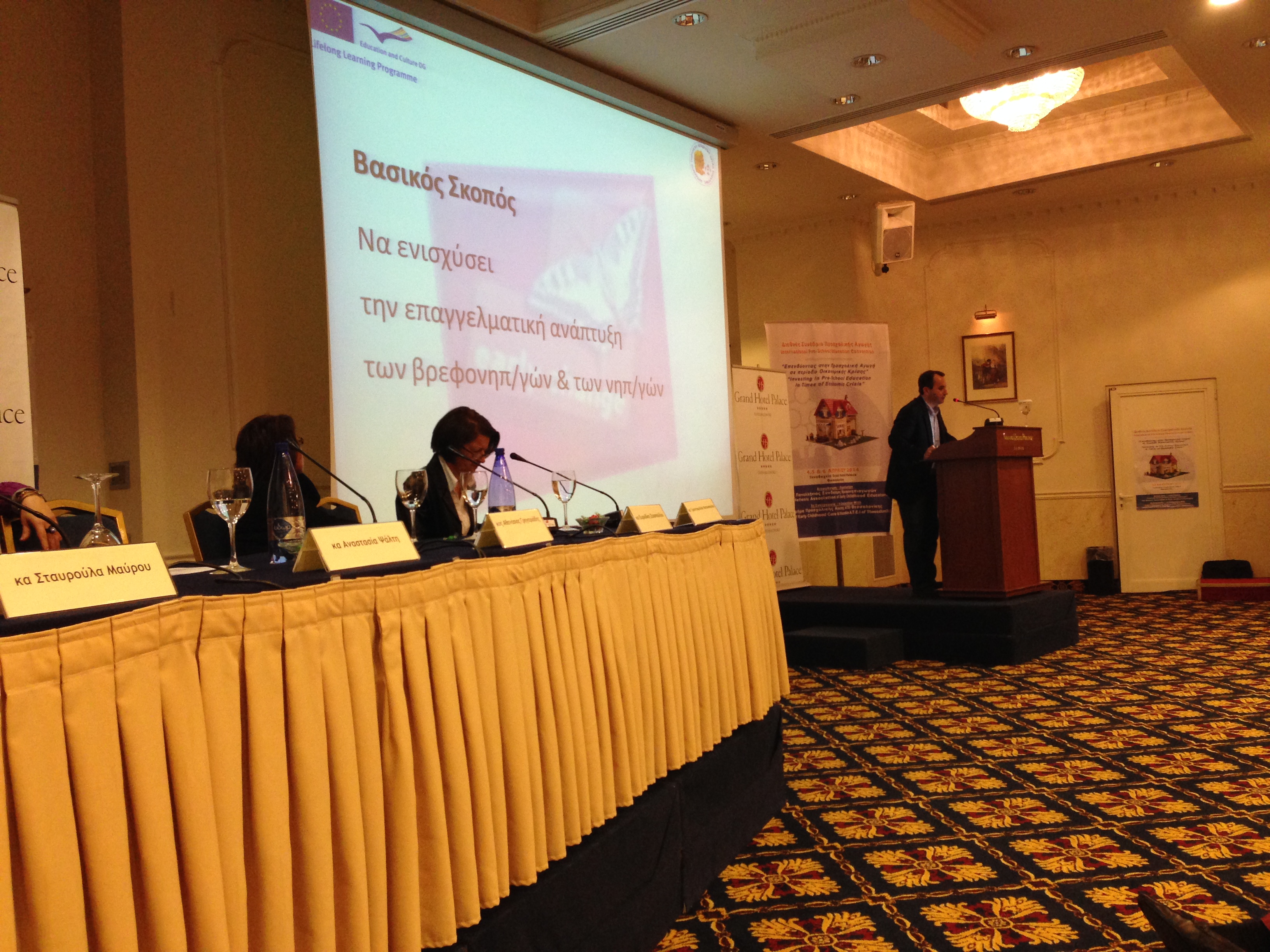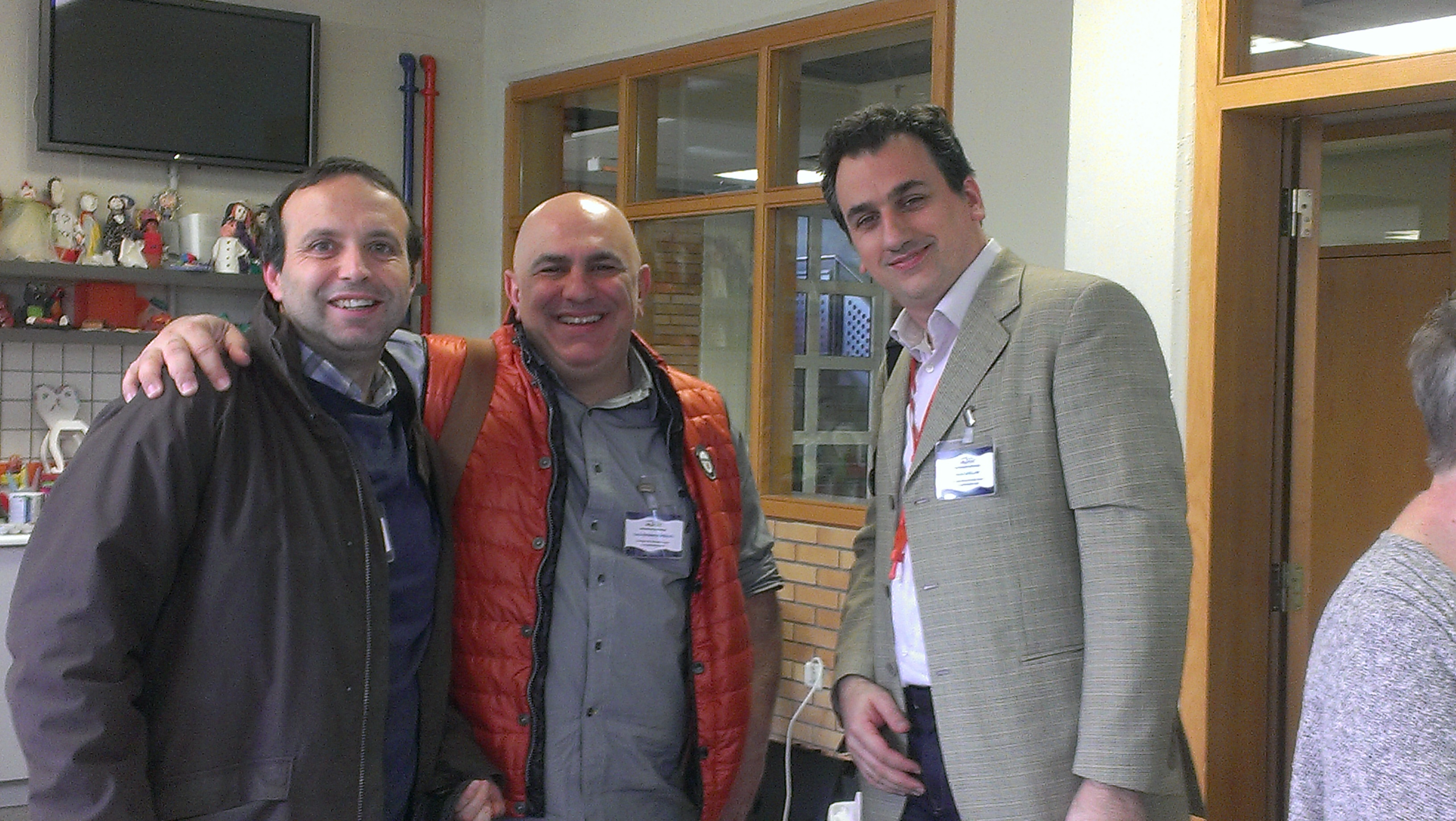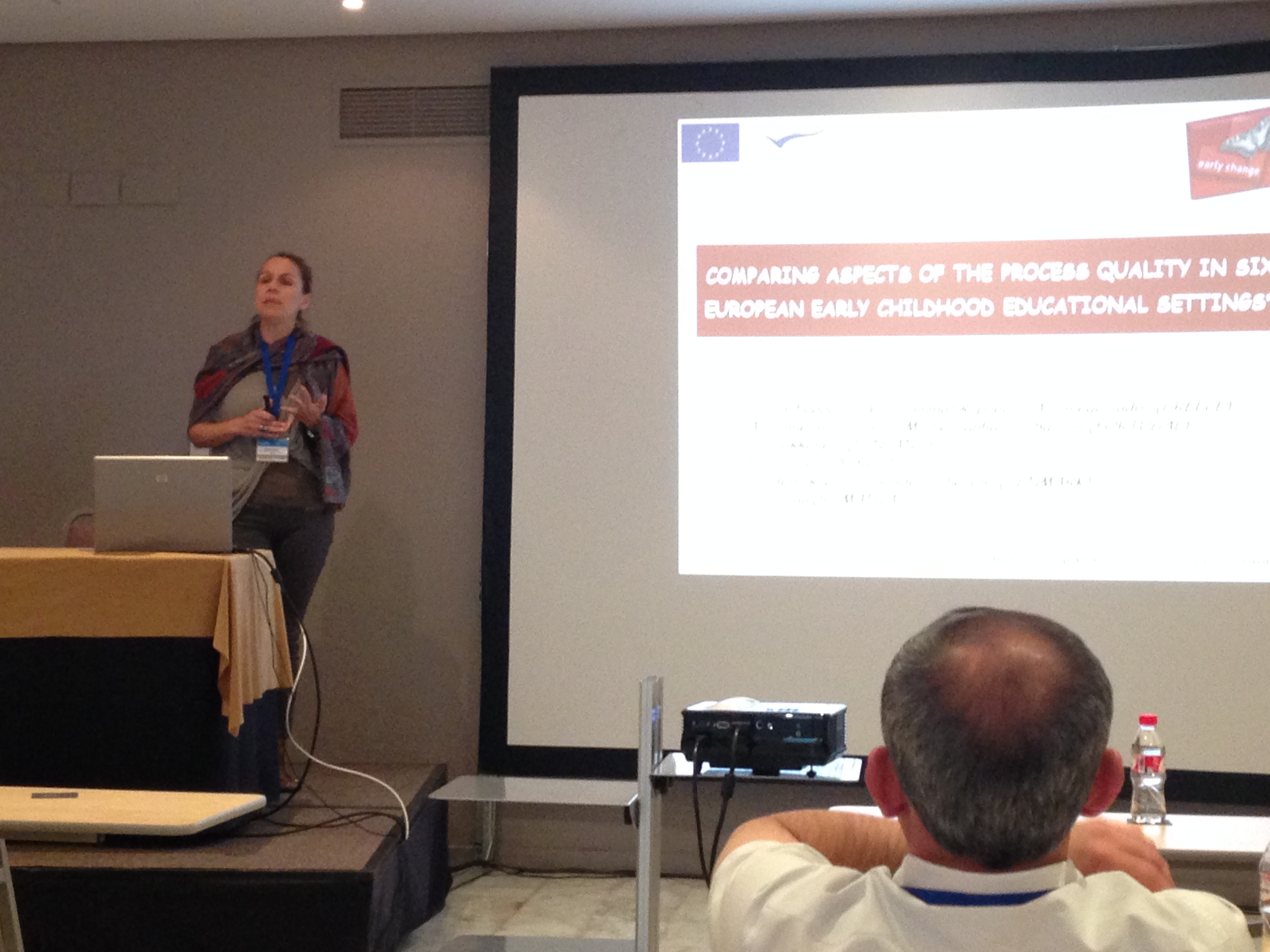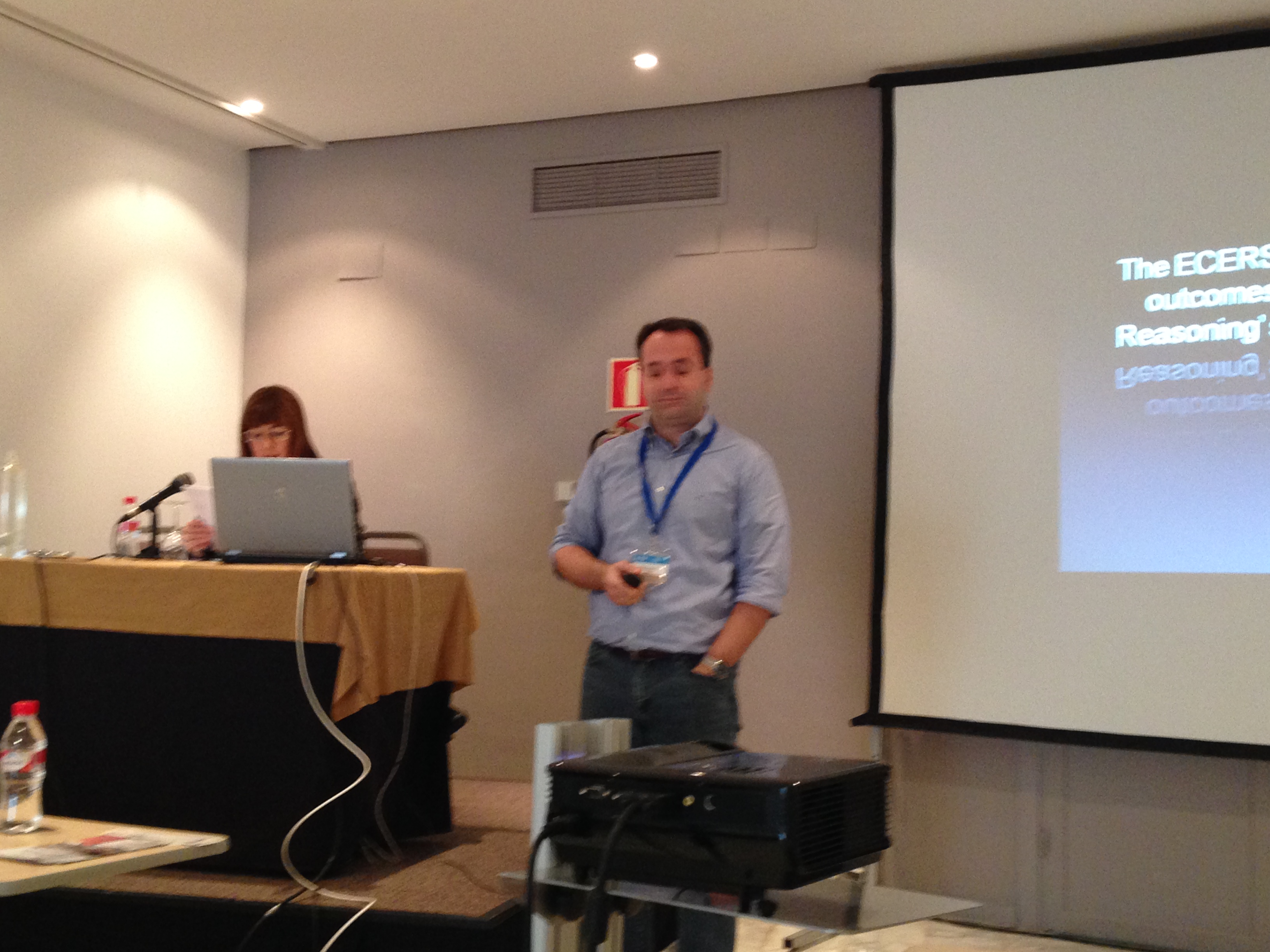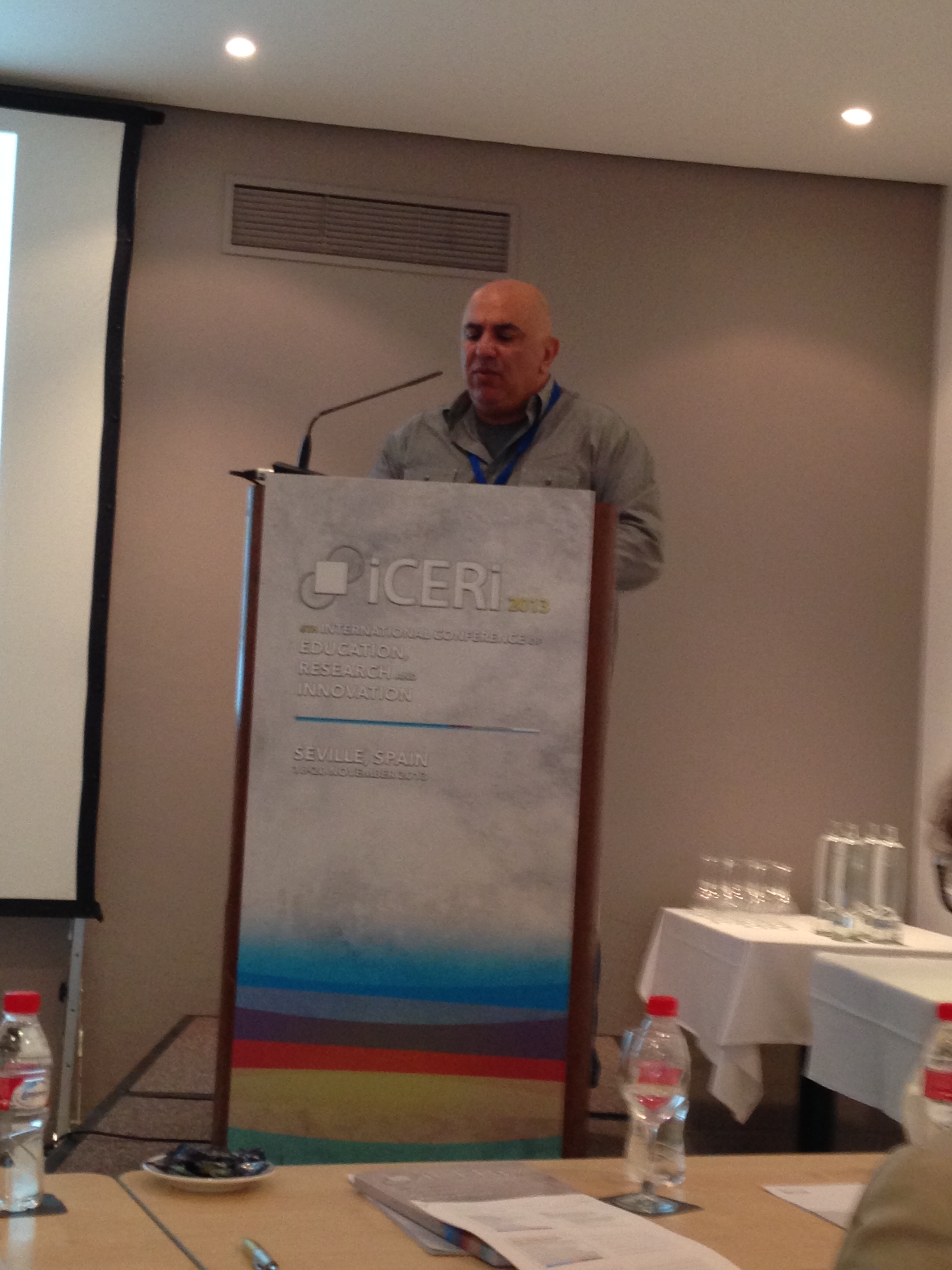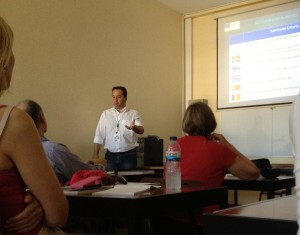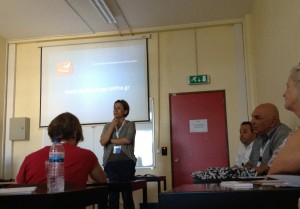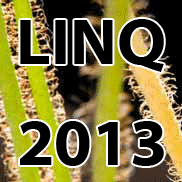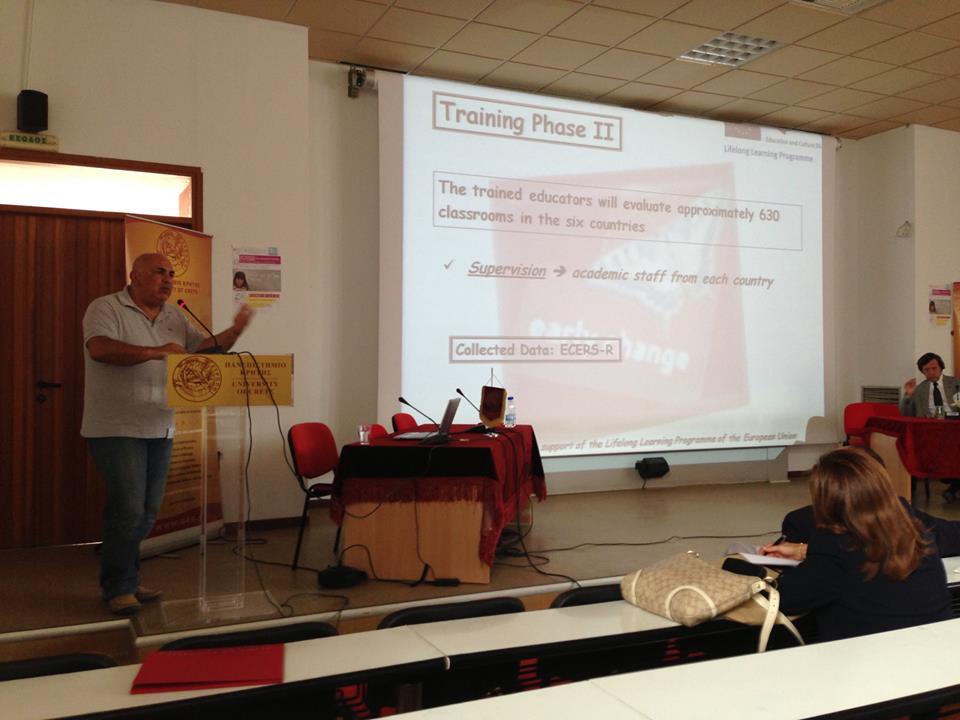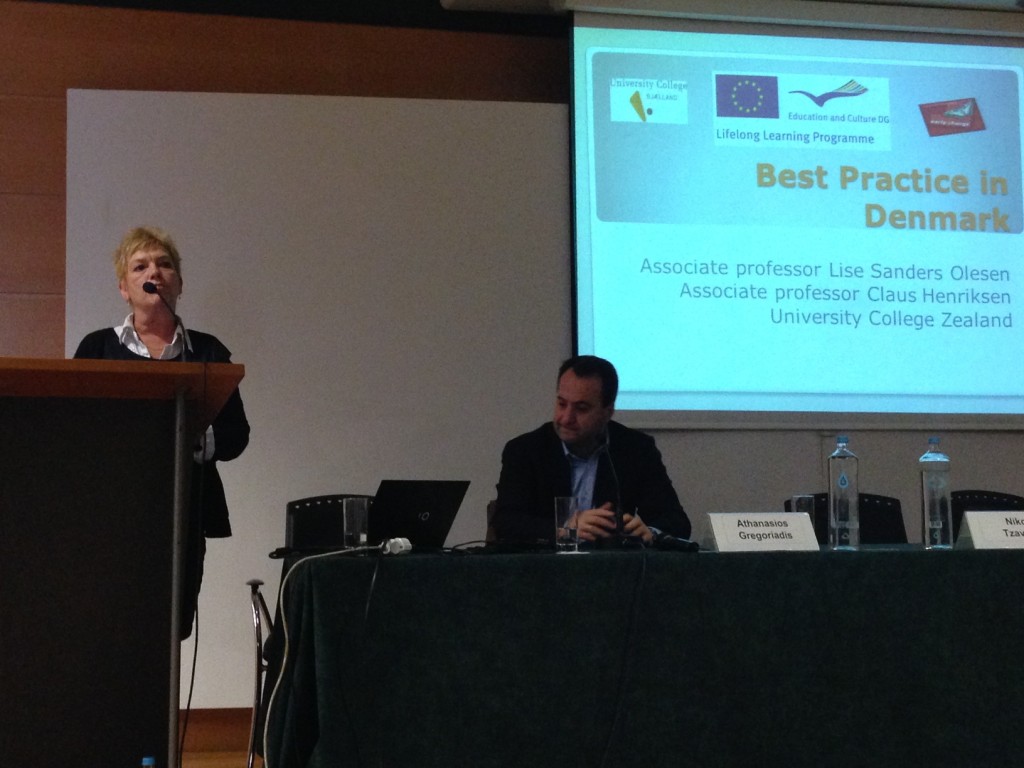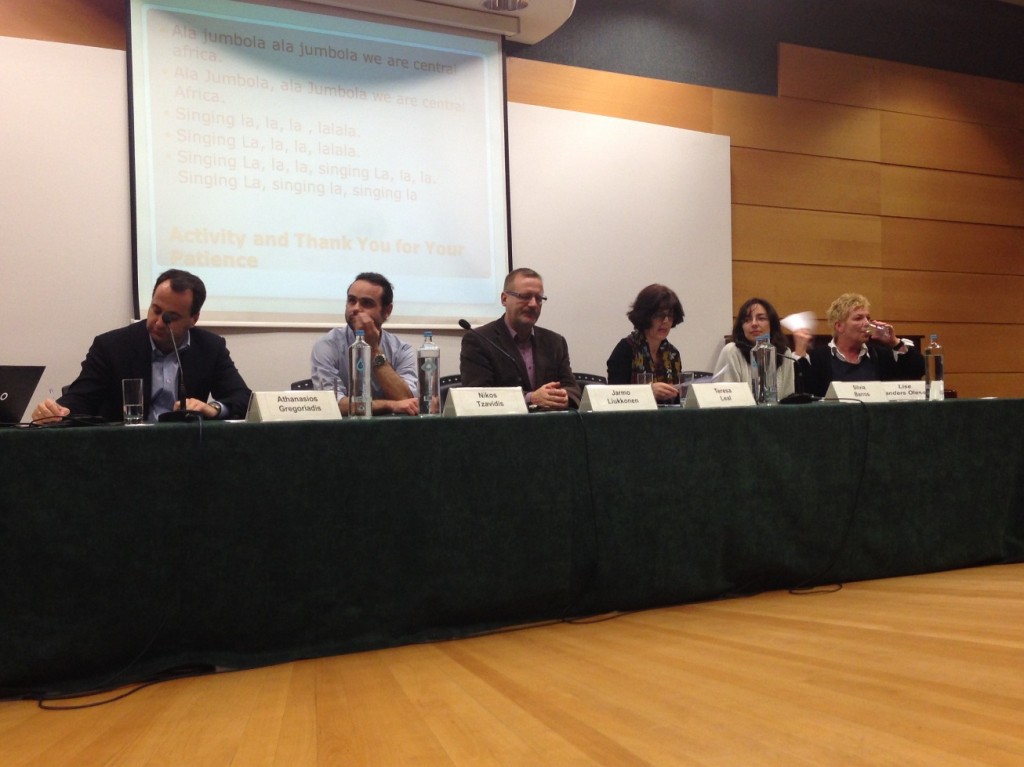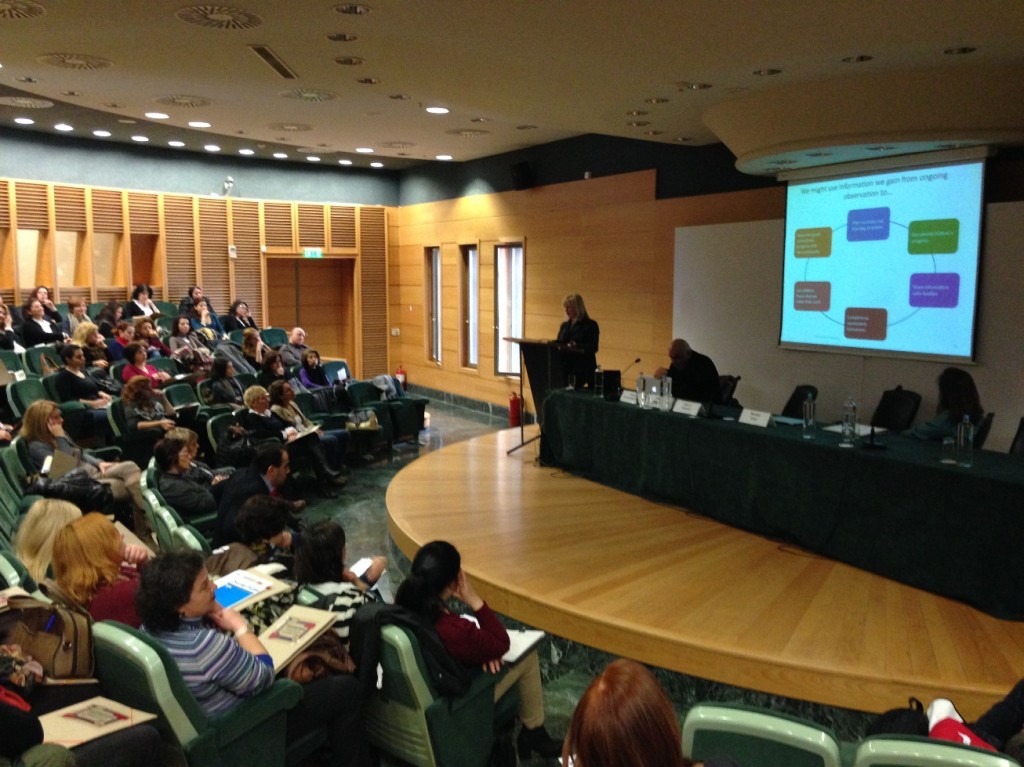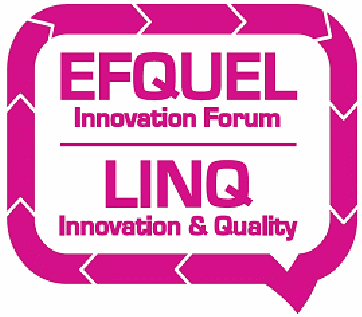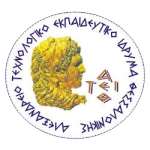Meetings
Final meeting of the ‘Early Change’ project
The final meeting of the EARLY CHANGE project was held on 23rd and 24th of January 2014 in Thessaloniki (Greece). The participants were 10 academics from the nine Universities – partners of the project.
The agenda of the meeting included the following topics:
- Work-packages and deliverables that were completed till the time of the final meeting
- Report from each partner-country describing the implementation and the benefits of the project’s implementation
- Methods of data processing
- Issues about the organization of the ‘Early Change Workshop’ which took place in Thessaloniki, on 25th of January 2014
- Future dissemination activities
- Financial issues
- Preparation of the E-book, allocation of tasks
- Future deadlines and preparation of the Final Report
Dr. Zachopoulou, the coordinator of the project, presented the work-packages and the deliverables that were completed from the beginning of the project till the time of the final meeting. She also presented the dissemination actions for the same period of the project. These actions included the participation in eight International and European Conferences, where project’s results were presented. Additionally, the dissemination actions also include the following publications: in the ‘The International Journal for Innovation and Quality in Learning, and in the Proceedings of ICERI 2013 Conference (International Conference of Education, Research and Innovation). During the meeting, the partners took decisions about the future dissemination activities, along with future deadlines which linked with the preparation of the Final Report of the project. Dr. Zachopoulou also discussed extensively with all partners various topics related to the financial management of the project.
Dr. Gregoriadis, from Aristotle University of Thessaloniki (Greece), presented the structure of the E-book, and allocation of tasks were discussed. Dr. Liukkonen, from University of Jyvaskyla (Finland), presented the data which were collected by each country, and discussed with the partners the methods to analyze and present them. Finally, one representative from each country made a 15 – min presentation, describing specificities of the project’s implementation in each country, difficulties during the use the evaluation scales, and the different reflections from the participated early educators.
The second meeting of the EARLY CHANGE project was held on 2nd and 3rd of September 2012 in Porto (Portugal). The participants were 12 academics from the eight Universities -partners of the project.
The agenda of the meeting included the following topics:
(a) the dissemination actions that were implemented til the time of the 2nd meeting,
(b) various issues regarding the translation and selection phases for each country,
c) the program for the training seminars in each country, the training requirements and training procedure issues,
d) financial issues,
e) time planning of the project, future deadlines and the next steps.
Dr. Zachopoulou, the coordinator of the project, presented the dissemination actions and the activities that were concluded the period from the first meeting till the second meeting. These actions included the participation in the International ECERS Meeting 2012 (Berlin, May 2012) and the participation in the EECERA 2012 Conference (Porto, August 2012) through a self-organized symposium entitled ‘Early Change: A cross-national project of early childhood education quality’. Dr. Zachopoulou also discussed extensively with all partners various topics related to the financial management of the project.
Dr. Grammatikopoulos, from University of Crete (Greece), and Dr. Gregoriadis, from Aristotle University of Thessaloniki (Greece), presented during the meeting, the detailed program, the content and the practical issues concerning the Training Seminars for early educators in each country. An All partners discussed thoroughly the details and the modifications necessary for the Training Schedule in each country. The partners from Porto University and from Polytechnic Institute of Porto presented their contribution in the Training Seminars. The last topic of this meeting focused in the preparation of the Progress Report of ‘Early Change’ project.
The hosting partners were Dr. Teresa Leal from Porto University, Dr. Ana Gamelas and Dr. Manuela Pessanha from Polytechnic Institute of Porto. Except from the hosting partners, the coordinator and the partners from Greece (Dr. Grammatikopoulos and Dr. Gregoriadis), the other participants Dr. Jarmo Liukkonen and Dr. Raija Raittila from Jyvaskyla University (Finland), Dr. Eleni Loizou from University of Cyprus, Claus Henriksen from University College Zealand (Denmark), and Anca Petrescu and Camelia Radulescu from University of Bucharest (Romania).
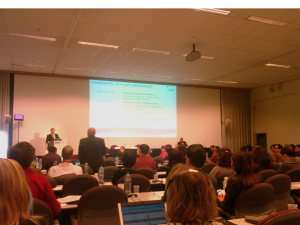 Dr. Vasilis Grammatikopoulos on behalf of the Early Change project attended the kick-off meeting for Comenius, ICT and Languages Projects held on Thursday 16 and Friday 17 February 2012, in Brussels, Belgium.
Dr. Vasilis Grammatikopoulos on behalf of the Early Change project attended the kick-off meeting for Comenius, ICT and Languages Projects held on Thursday 16 and Friday 17 February 2012, in Brussels, Belgium.
Valuable information and guidelines about project management were presented by the officials of EACEA. Moreover, networking opportunities with colleagues across different actions were revealed. We are currently discussing with several colleagues involving in relevant projects or
networks in order to find ways to cooperate with each other something that could be most beneficial.
The presentations of the meeting can be found in the following link
The first meeting of the EARLY CHANGE project was held on 3rd and 4th of February 2011 in Thessaloniki. 12 academics from eight Universities -partners of the project, participated in the meeting.
The issues discussed during the meeting were:
(a) Time-planning of the whole project, with detailed reference to each phase of the project,
(b) Allocation of tasks and issues concerning the administrative and the financial management.
Dr. Zachopoulou, the coordinator of the project, presented the work plan with detailed description of the activities and the outputs of each phase of the project. The deadlines for each deliverable were set, and financial and management issues were discussed in details with the partners. Dr. Grammatikopoulos, from University of Crete (Greece), and Dr. Gregoriadis, from Aristotle University of Thessaloniki (Greece), presented during the meeting, the evaluation strategy of the project and the guidelines for collecting good practices.
Moreover, issues concerning future plans such as the next meeting in Porto, forthcoming training seminars and further actions were analyzed. The final dates for the meeting in Porto and training seminars in Greece, Portugal, Denmark, Finland, and Cyprus were initially agreed and will be finalized till the end of April.
Except from the hosting partners the other participants were Dr. Teresa Leal from Porto University (Portugal), Dr. Ana Gamelas, Dr. Silvia Barros and Dr. Manuela Pessanha from Polytechnic Institute of Porto (Portugal), Dr. Jarmo Liukkonen, from Jyvaskyla University (Finland), Dr. Eleni Loizou from University of Cyprus, Lise Sanders Olesen and Claus Henriksen from University College Zealand (Denmark) and Bill Lehmann from Guldborgsund Municipality (Denmark). These partners had the chance to present the Early Childhood Education system of their own country during a session of the meeting.
The partners from Romania could not participate in the meeting due to the severe weather conditions faced their country during those dates. Thus, the coordinating institute organized another meeting with them held on the 16th & 17th of February 2012. Dr. Romita Iucu, Vice Rector of the University of Bucharest, and Dr. Laura Ciolan, Senior Lecturer at the same university traveled safely this time to Thessaloniki and participated in this extra scheduled meeting which was special organized for them. The topic discussed were the same with those of the first meeting. Moreover, the dates for the training seminar in Romania were decided.

